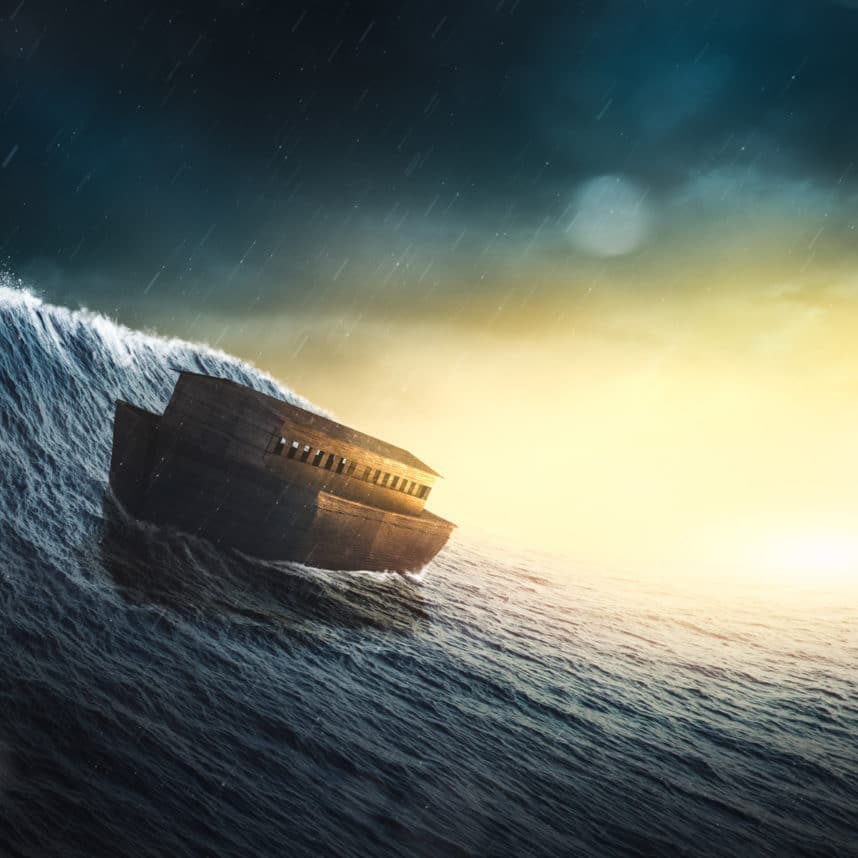
Destruction and Regeneration
Thoughts on Torah Portion Noah (adapted from previous versions)
I imagine warring bands of murderous maniacs, spreading ruination everywhere they went. Anyone who stood up to them was hacked down. Just about everyone eventually joined the frenzy. Something like the zombie shows, except in this case, the zombies win, and the murderous hordes are not zombies. These mobs are human beings like us, but have gone very, very bad.
I see this humanity gone bad when I study the depredations of Nazism and the bloodlust reigns of Stalin, Mao, Imperial Japan, the Kims of North Korea and Saddam. I see this in the genocides in Rwanda, Myanmar, and the Balkans. I see it in the crazed viciousness of ISIS, Al Qaeda and the Taliban. The rampant crusades of Christians and the Jihads of Islam. The incredible violence in some parts of our own Bible. Every time I dig into world history, I see it. The Armenian genocide, Cambodia, Bangladesh. The Mongols. The list is long.
Imagine each of these maniacal tribes has won its war against humanity and is closing in to murder the remaining other tribes and everyone in its path. You might write, as the Bible does, that “the world had become corrupt and was filled with violence.” If you believed in a God that acted in history, you might pray that this powerful God would wipe out this heinous humanity and all its cruelty. (If you have trouble imagining this, go watch Darren Aronofky’s movie “Noah.”)
The Bible imagines this depravity and its consequence in its own way. Humanity, the Bible tells us, has been an awful error. Human beings, made from earth and water and animated by spirit, would be dissolved back into the earth from which they came, and ultimately into the abyss of water that existed before creation. The spirit, trapped in this form that became monstrous, would be released back to God. The spirit of God would hover silently again over the face of the waters. Cries of savagery would be stilled.
The bone chilling story of an ancient flood seemed to inhabit the minds in the ancient world of the Middle East. The “Black Sea Deluge” theory holds that the Mediterranean Sea broke through the Bosporus around 5600 BCE, flooding an ancient littoral civilization within months. Others believe that the Mesopotamian rivers overflowed and deluged the cradle of civilization for centuries. Plato taught that the ancient island city of Atlantis fell out of favor with the gods and sank into the Atlantic Ocean (of all places). Whatever the source of the ancient Middle Eastern cultural memory of the flooding, The Deluge became part of the collective memory of that part of the world. Everyone knew it happened. But why?
The biblical author(s) held that this flood was an act of God to reverse creation. In other words, the Bible rewove an ancient tradition of a flood to support its theory that, referring to the human being, “every form of the thoughts of his heart are all bad, all the time” (Genesis 6:5). It took 10 generations from Adam to Noah for such a complete human degeneration that would require that creation would be reversed to a watery silence.
As in other flood stories there was a “last good man.” In some flood stories, this person was hidden to survive the flood by a renegade god, much to the displeasure of the other gods who wanted to do away with humanity.
In the biblical story, it is the one God who is looking for the righteous person, the one who walks with God, to regenerate humanity out of the havoc and debris. The regeneration is bizarre and seems to forebode something awful. On one hand we have a rainbow. On the other hand, Noah gets blind drunk as soon as the first grape harvest comes in.
The God of the Bible has apparently learned a lesson and waits patiently, 10 full generations, for the next chapter of the regeneration of humankind. “No more floods,” God seems to be reminding God’s self. I think that the rainbow wasn’t there for us. The rainbow seems to function as fringes on the garment of heaven, to remind God to follow God’s own commandments. (The Bible often tells us that God tends to forget to be God-like.)
There would be 10 generations from Noah to Abraham. Abraham could “walk before God and be whole.” Abraham would teach his descendants, spiritual and biological, to keep God’s way and the righteous law. The Bible, as literature and philosophic psychology, sees the human being as fallen but also able to stand up again. To achieve moral standing, however, we would need a teaching – a vision and a path so strong and clear that this teaching would guide us in turning back the flood of destructiveness.
People would learn to stand up against hordes that want to destroy humanity. We would also learn to turn back the destructive flood that rises within each of us and among us. It is in our nature to be destructive, but it is also within our nature to transcend our nature. Chaos, too, can be reversed. Entropy is not the ultimate law of the universe.
A new tribe would come into being, teaching the vision and the way.























 More news and opinions than at a Shabbat dinner, right in your inbox.
More news and opinions than at a Shabbat dinner, right in your inbox.